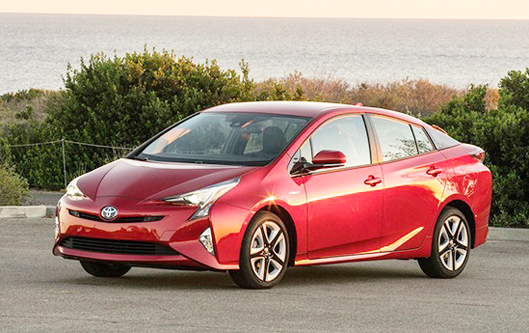NEW DELHI : Japanese carmaker Toyota today pushed for a lower excise duty for vehicles with pure hybrid mechanisms while seeking a clear distinction between fully hybrid and mild hybrid technologies.
The company, which operates in India through a joint venture with the Kirloskar group, plans to bring in hybrids and latest technology vehicles in the country as part of its long-term strategy.
“The government recognises it very clearly that a strong hybrid is superior to a mild hybrid, that is recognised and we respect government’s views on that and it’s a consensus view even within the industry,” Toyota Kirloskar Motors (TKM) Vice-Chairman Shekar Vishwanathan told PTI.
“There is no dispute on that, but where the recognition is not coming from the government is from the tax side. The excise duty structure that is currently prevalent puts both mild and strong hybrid vehicles on the same plane. So, I think it definitely needs some correction because the strong hybrid is much more fuel efficient,” he added.
In the current tax structure, all types of hybrid vehicles — mild, pure, small and big — attract an excise duty of 12.5 per cent.
A hybrid vehicle uses two or more separate systems to propel the vehicle while a mild hybrid electric motor cannot actually propel the vehicle on its own. The real benefit of the mild hybrid system is it saves fuel by shutting off the gasoline engine.
Currently, carmakers like Maruti Suzuki and Mahindra sell some of their models with mild hybrid technology. These models are affordable as compared to a vehicle with fully hybrid technology.
TKM sells locally manufactured Camry hybrid in the country and plans to launch a new version of Prius early next year.
Similarly, both mild and fully hybrid models get similar kind of benefits under the FAME scheme, which was launched last year to promote eco-friendly vehicles.
FAME India scheme offers incentives on electric and hybrid vehicles of up to Rs 29,000 for bikes and Rs 1.38 lakh for cars.
FAME India — Faster Adoption and Manufacturing of Hybrid and Electric vehicles in India — is part of the National Electric Mobility Mission Plan.
Besides, imported CBU models do not come under the ambit of the scheme, making them all the more expensive to own.
Earlier this year, Honda Cars India had also called for a clear distinction between fully hybrid and mild hybrid technologies for equitable distribution of resources. (AGENCIES)
Trending Now
E-Paper


